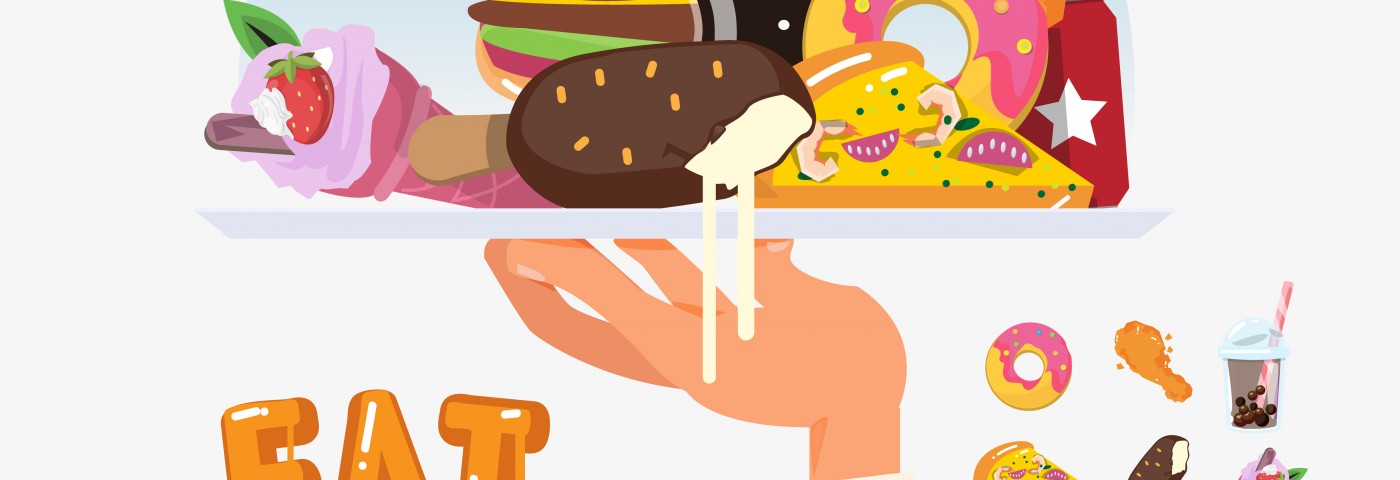University of St. Andrews researchers reported evidence of a psychological link between poverty and obesity, finding that people who perceive themselves to be poor or anxious are likely to eat more than those with few feelings of inequality.
The two-part study, titled “Poverty, inequality, and increased consumption of high calorie food: Experimental evidence for a causal link” and published in the journal Appetite, suggests that people eat large amounts of high calorie food to “self-soothe,” driven by anxieties that come from feeling unequal to others.
Dr. Boyka Bratanova, a management lecturer at St. Andrews, Scotland, led the study providing the first experimental evidence that poverty and inequality can lead to obesity, and that psychological mechanisms play a part in linking socio-economic conditions and eating patterns.
“Feeling poor and feeling unequal can simultaneously influence eating behavior, pushing people to approach high calorie food and consume larger amounts of it. It appears that humans and animals respond similarly to harsh and scarce environments, and this response takes the form of pre-emptive increase in food consumption,” said Dr. Bratanova in a press release. “Inequality, on the other hand, evokes a sense of anxiety, and this is true both for the disadvantaged and for the advantaged. The disadvantaged are worried that others will look down on them and see them as inferior; the advantaged are worried that others may envy them and challenge their privileged position. This social anxiety in turn pushes people to consume larger amounts of food high in sugar and fat as a way to soothe their emotions.”
Researchers tested two hypotheses: that perceived poverty triggers increased food consumption, and that inequality induces anxiety, which in turn, leads to eating more. The study initially gathered background information on the participants’ socio-economic status (SES) as a measurement of inequality. Participants were also asked to rate how worried they were that other people might look down on them, perceive them as unequal, inferior, or envy them. The participants were then divided into two groups, encouraged through reading to either identify as poor or as wealthy. Both groups then watched short videos while given chocolates and cheese crackers as snacks.
The team observed that the group induced to feel poor ate about 54 percent more than those induced to feel wealthy. In addition, participants who rated themselves as more anxious, either for fearing that others might look down on them or envy them, also ate significantly more than those who did not report such anxieties.
For the second part, participants were broken into small groups, told that they would discuss their personal finances, and asked to reveal their household income and estimates of SES. They were then given “feedback” to their responses, making them believe they were either poorer, wealthier, or equal to others. Participants next wrote about how they expected the discussion to go.
As hypothesized, those led to believe they were unequal to their peers, either poorer or wealthier, expressed more anxiety about the group discussion. This anxiety also resulted in a higher food intake.
Results showed, Dr. Bratanova said, that obesity “campaigns based around education are likely to induce guilt in poor people, because they convey the message that choosing what to eat is within an individual’s control. Instincts, however, are difficult to control. Taken together, the poor in a society seem to have it the worst — they carry the burden of poverty, suffer emotionally from relative deprivation, pay higher proportion of their incomes in consumption tax, and feel guilty and inadequate because of their eating behavior.”
She also said the study has public policy implications, both for eduction programs and tax penalties aimed at fighting obesity, such as the recent U.K. “sugar” tax.
“I am sure public health campaigners, including Jamie Oliver, have their heart in the right place and perhaps taxing sugar drinks as a way to address child obesity is a good idea,” Dr. Bratanova said. “However, understanding the psychology that links poverty, inequality and eating behavior is important so that we don’t do greater harm than good. Addressing the root causes — poverty and inequality — would be the ultimate solution of the obesity crisis.”


